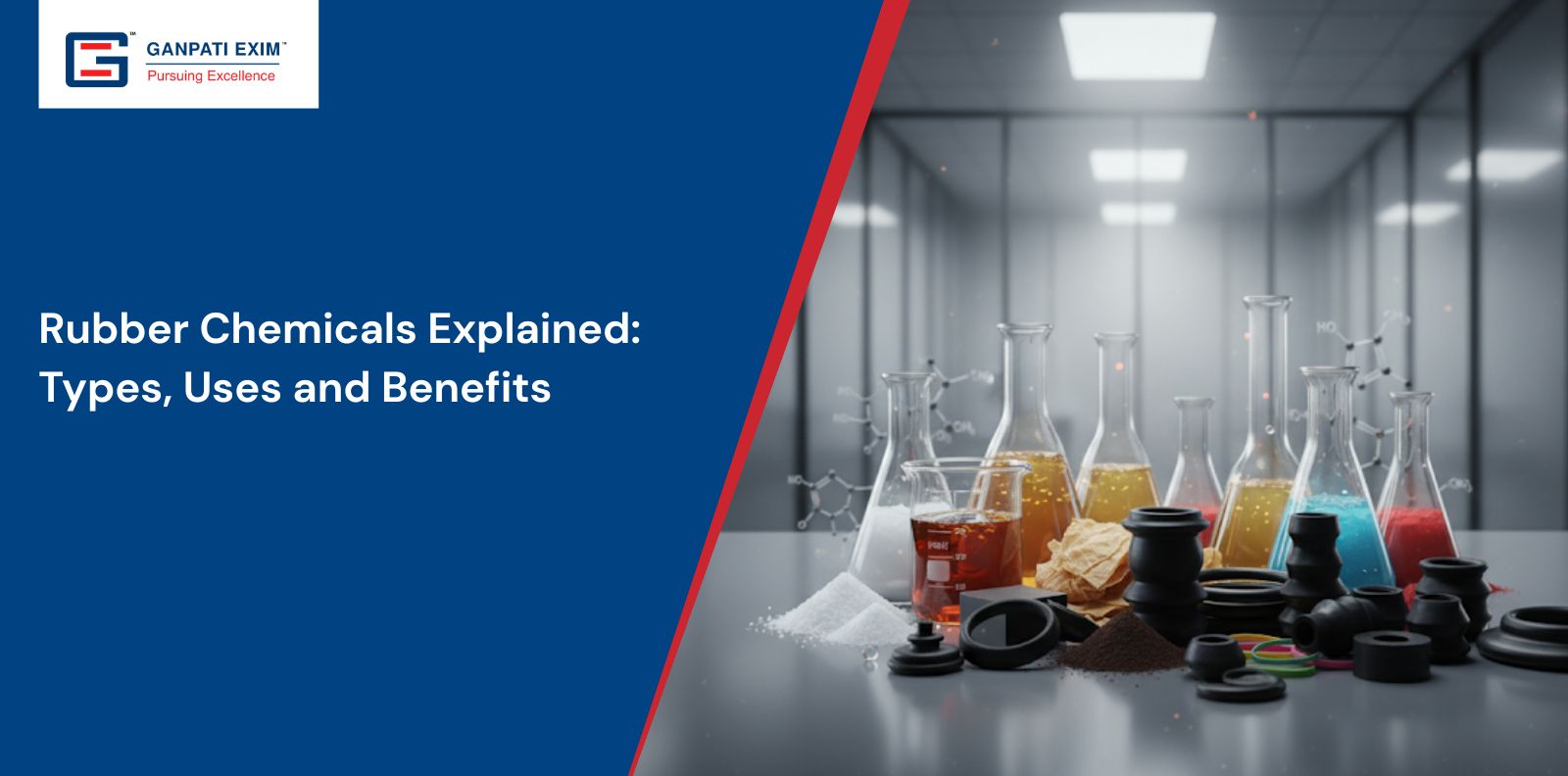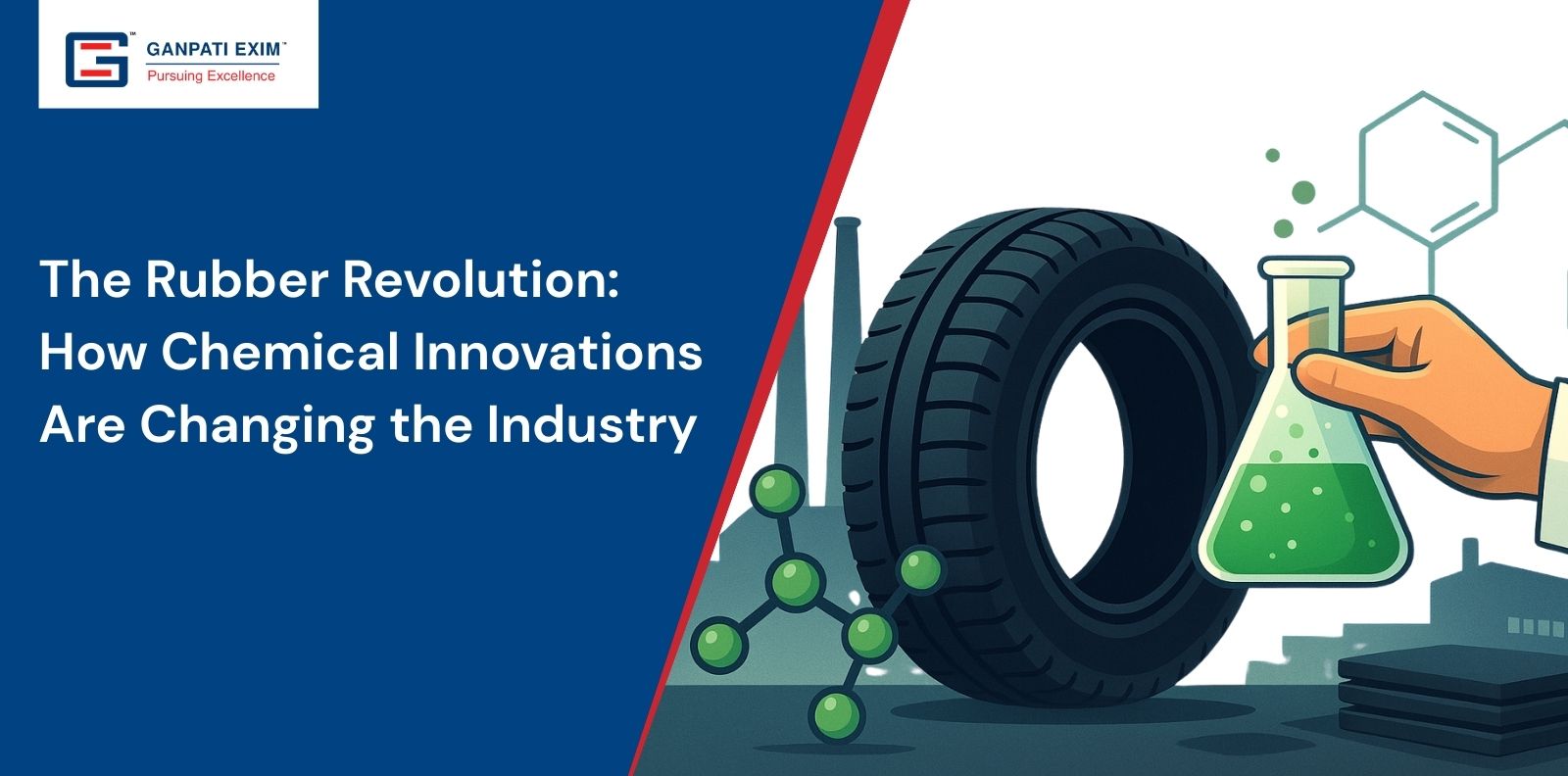
Rubber Chemicals Explained: Types, Uses and Benefits
Rubber is one of the most versatile materials in modern industry, used in everything from tires and footwear to seals, hoses and industrial goods. But raw rubber alone is not enough. To achieve the strength, flexibility, durability, and performance that industries demand, rubber chemicals play a vital role. These specialized chemicals are added during processing and manufacturing to improve the properties of rubber and tailor it for specific applications.
In this guide, we will explore the types, uses and benefits of rubber chemicals, highlighting how they enhance rubber products and why they are essential in today’s industries.
What Are Rubber Chemicals?
Rubber chemicals are additives used in the processing and manufacturing of natural and synthetic rubber. They modify the physical and chemical properties of rubber, making it stronger, more elastic, durable and resistant to environmental factors. Without rubber chemicals, the performance of rubber in applications like tires, automotive parts and industrial products would be significantly limited.
Types of Rubber Chemicals
Rubber chemicals can be broadly categorized based on their function in the compounding process.
1. Accelerators
- Purpose: Speed up the vulcanization process (the chemical reaction that gives rubber its elasticity and strength).
- Examples: MBT, CBS, TMTD.
- Applications: Used in tyres, industrial goods and footwear.
2. Antioxidants
- Purpose: Protect rubber from oxidative degradation caused by air, heat and ozone.
- Examples: TMQ, IPPD, 6PPD.
- Applications: Automotive tyres, conveyor belts, sealing products.
3. Antiozonants
- Purpose: Specifically protect rubber from cracking due to ozone exposure.
- Applications: Outdoor rubber products like hoses, cables and tires.
4. Plasticizers & Softeners
- Purpose: Improve flexibility, workability and reduce brittleness.
- Examples: Aromatic oils, paraffinic oils and phthalates.
- Applications: Footwear, automotive parts and molded goods.
5. Processing Aids
- Purpose: Enhance mixing, dispersion and overall processability of rubber compounds.
- Applications: Widely used in all rubber manufacturing industries.
6. Fillers & Reinforcing Agents
- Purpose: Improve strength, abrasion resistance and cost-effectiveness.
- Examples: Carbon black, silica.
- Applications: Tyres, industrial belts, molded rubber goods.
7. Blowing Agents
- Purpose: Used to make cellular rubber (foam rubber) with lightweight and cushioning properties.
- Applications: Footwear soles, cushions and insulation.
Uses of Rubber Chemicals in Industry
Rubber chemicals find applications across various industries:
- Automotive Industry: Tyres, seals, hoses, belts and gaskets.
- Footwear Industry: Soles, heels, sports shoes and safety shoes.
- Construction: Roofing materials, insulation and flooring products.
- Industrial Goods: Conveyor belts, vibration dampers and gaskets.
- Consumer Goods: Gloves, rubber bands, household items.
Benefits of Rubber Chemicals
Rubber chemicals offer multiple advantages that make rubber suitable for diverse applications:
- Enhanced Durability: Improves resistance to wear, tear and aging.
- Weather & Ozone Resistance: Protects rubber from environmental degradation.
- Improved Flexibility: Increases elasticity and comfort in footwear and tires.
- Cost-Effectiveness: Enables efficient manufacturing and longer product life.
- Customized Performance: Different chemicals allow tailoring rubber for specific industrial needs.

